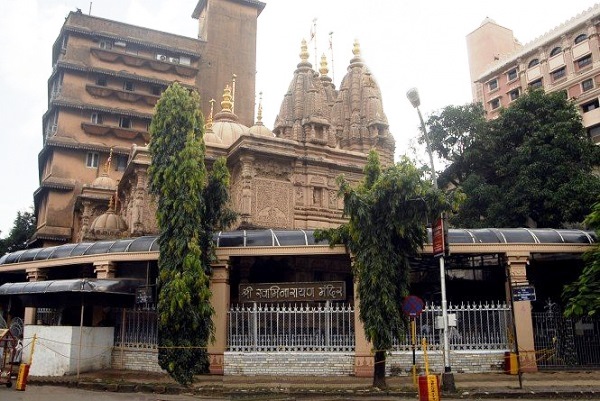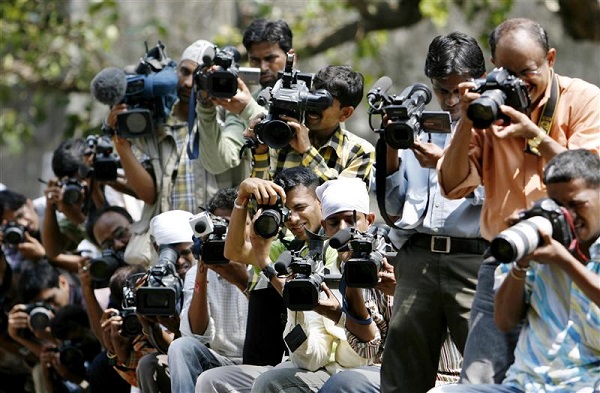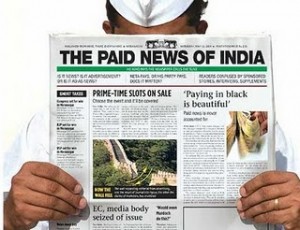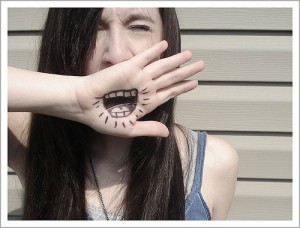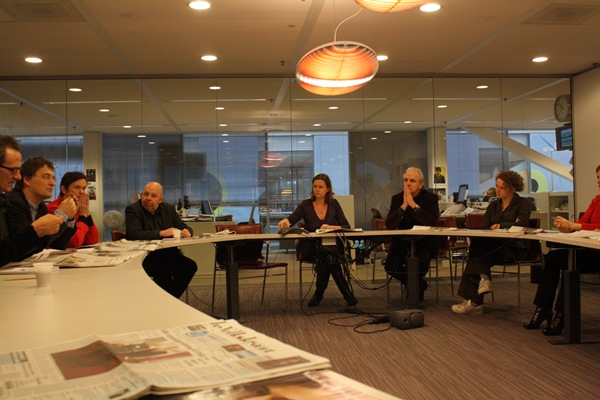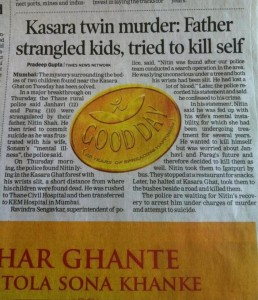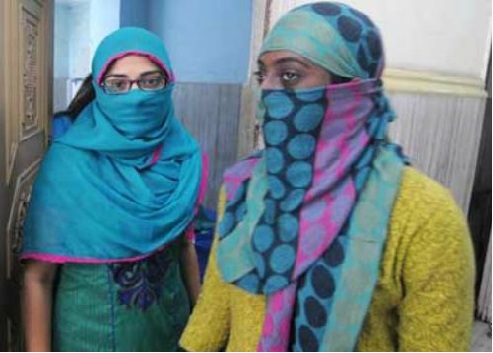Yogi auditorium next to Dadar’s Swaminarayan Temple always asks women to sit a few rows behind men. A personal account.
by Vrushali Lad | editor@themetrognome.in
I learnt with dismay, but not with surprise, of a woman journalist being asked to vacate her front row seat at the auditorium adjoining the Swaminarayan Temple at Dadar. She was there as an invited mediaperson to cover a religious function to honour Maharashtra Chief Minister Devendra Fadnavis in the wake of the beef ban in the State.
I know the journalist for years now, and first learnt of the incident on her Twitter feed. She was understandably furious over being asked to sit ‘three rows behind’ – women are not allowed to sit in these rows and must take a seat in the rows behind. After arguing with the authorities and even speaking about it to a senior BJP leader, she finally left the auditorium.
The same thing happened a couple of years ago.
An awards function to honour Gujarati achievers
It was at the same venue a couple of years ago that I first learnt of this practice. My husband, a Gujarati by birth, was to be awarded for his services to journalism. He was part of a group of other Gujarati awardees from various fields – entertainment, education, law, civil rights. I had accompanied my husband and some of our family members to the event, and I remember looking through the invite which had pictures of the other awardees. Only one of them was a woman – a young pilot with a commercial airline, possibly the first from the community.
When we got there, the function had already started but the auditorium was not full. When we made our way to the front seats, I was promptly stopped by two young men, who told me to sit anywhere provided it was 10 rows away from the stage. Perplexed, I assumed that the front rows were reserved for families of the organisers, which normally happens. We sat behind and awaited the prize distribution.
At one point, all the awardees were asked to take their seats on the stage, and my husband joined the others. But there was no sign of the woman pilot. I wondered if she was going to show up at all, then decided she must be at work and somebody else would take her award for her.
Then the chief guests for the awards function, two sadhu brahmachari types, were brought on the stage and a lot of feet-touching and speech-making followed. Finally, the awardees’ names began to be called out. When the pilot’s name was announced, there was a flurry of activity at the far end of one of the middle rows of the auditorium – everyone kept craning their necks and looking at a smiling woman who had just stood up. With horror, I saw that it was the woman pilot.
A little questioning finally helped me understand – the woman had not been allowed to take her place on the stage with the other male awardees, had not been allowed to sit in any seat in the first 10 rows, and what was worse, she was given her award at her seat in the audience by two other men from the organising committee, not by the sadhu chief guests. All of this because ‘women cannot be in physical proximity of a brahmachari‘.
On the stage, I saw my husband looking mutinous. When his name was called, he took his award and left without acknowledging the chief guests. Later he kicked himself for accepting the award in the first place.
I just looked across at the woman pilot – the young achiever for whom the sky was literally not the limit, was completely okay with being treated this way by a bunch of religious nobodies who, in this day and age, hold on to some archaic views on women in the guise of religious sanctity. What would compel an independent, successful woman to accept an award at a venue that routinely makes women sit in the back rows because ‘that is the rule here’? Didn’t she feel the slightest humiliation at being the only one to not be seated on stage with her contemporaries, on account of her gender?
I still wonder at her. And I’m never going back to that auditorium again.
What do you think of yesterday’s incident with the woman journalist at the CM’s function? Tell us in the comments section below.
(Pictures courtesy www.mapsofindia.com. Image is a file picture)
